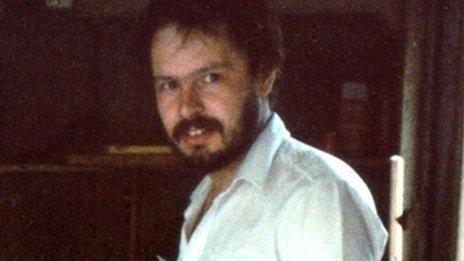Hogan-Howe vows to restore trust in Met after new Lawrence row
- Published
Met chief Sir Bernard Hogan-Howe says he wants to "make sure that people have trust in the Met of today and the Met of the future"
The head of the Metropolitan Police has vowed to win back the public's trust after a damning report found officers spied on the family of murdered black teenager Stephen Lawrence.
Sir Bernard Hogan-Howe said the report, which has prompted an inquiry into undercover policing, was "devastating".
He said a new independent probe into police records would be commissioned.
Met Commander Richard Walton, who was criticised in the report, has been temporarily moved from his post.
'Somewhat troubling'
The report by Mark Ellison QC, external found that a police "spy" had been working within the Lawrence camp.
Lord Condon: "Had I known, I would have immediately stopped it"
It said the "spy" had met Mr Walton - then an acting detective inspector, who had been seconded to the Met's Lawrence review team, responsible for making submissions to the Macpherson inquiry.
The report found Mr Walton's account of the meeting "less than straightforward to establish and somewhat troubling".
Sir Bernard said the decision to move Mr Walton from his post as head of the Counter Terrorism Command to a non-operational role had been taken in light of the seriousness of the allegations.
The Met has voluntarily referred the matter to the Independent Police Complaints Commission (IPCC).
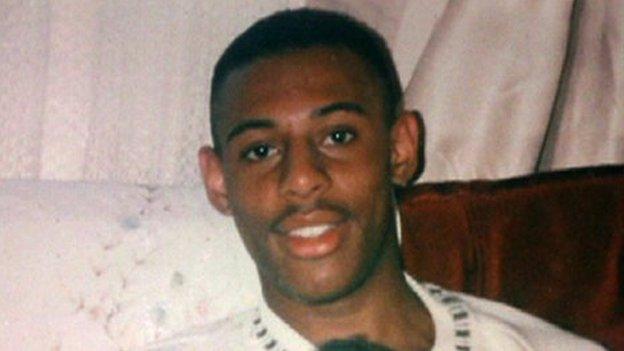
Stephen was 18 when was he was killed in a racially-motivated attack
The chair of the IPCC, Dame Anne Owers, has apologised to the Lawrence family for its 2006 investigation.
The Ellison review, she said, made clear that the IPCC had been wrong to conclude there was no evidence to suggest the Met withheld information relating to corruption from the Macpherson inquiry.
"I fully recognise this has prolonged by many years the Lawrence family's search for the truth about the failed investigation into their son's murder," Dame Anne said.
"I have today written to Baroness Lawrence and Mr Lawrence to apologise for our part in this."
Former Director of Public Prosecutions Lord Macdonald said policing was now "scraping the bottom".
He said Sir Bernard's comments - in the wake of the Ellison report - "reeked of complacency", and called for a Royal Commission on policing.
Earlier, Lord Condon, Met commissioner in 1993, said he did not authorise or know of "any action by any undercover officer".
The peer, who held the top post at Scotland Yard between 1993, when Stephen Lawrence was killed, and 2000, said: "Had I known I would have stopped this action immediately."
He added: "I think it's for the public inquiry to establish why I didn't know and whether that was stupidity, whether that was ignorance, whether that was deception, whether it was deliberately keeping issues from me because it was known that I would not have approved of them."
The lawyer representing Stephen's mother urged the Met to co-operate "fully" with the new investigation.
Imran Khan told the BBC police failings throughout the case went to "the highest level", and said Doreen Lawrence wanted "heads to roll".
Baroness Lawrence called on Sir Bernard to take "relevant and appropriate action" against those identified in the Ellison review.
A letter sent to him on her behalf said revelations in the review had been a "devastating blow" and added: "Nothing short of immediate and decisive action by you will begin to help build the trust needed to go forward."
The Ellison review also found it could not be ruled out that corruption may have compromised the investigation into Stephen's killing in 1993.
It was one of several revelations to emerge about the Met's former undercover unit, the Special Demonstration Squad (SDS), in the review of the original handling of the case.
'Considered response'
On Thursday, Home Secretary Theresa May told MPs the findings in the Ellison report had damaged the police and ordered the public inquiry.
The Ellison report found an SDS "spy" had worked within the "Lawrence family camp" during the Macpherson Inquiry, conducted in the late-90s to look at the way the police had investigated the murder of Stephen.
It also found that the Met's own hard copy records of a broad investigation into possible corruption had been subject to a "mass shredding" in 2003.
It warned that the "chaotic state" of the force's records meant that a public inquiry might have "limited" potential to find out more information.
Imran Khan, lawyer for Baroness Lawrence: "Heads should roll"
But Sir Bernard told the BBC that an "independently-led, multi-disciplinary team" would be brought in to go through the Met's records.
He said the scale of the task would be "immense" and that every computer and building would be searched. "I need to be sure that we looked everywhere possible," he said.
He said he could not account for the "mass shredding" of 2003, because he was not there.
"I can't account for the past, I can't reset the clock, I can't change history," Sir Bernard said.
"I can reset the clock for the future."
Sir Bernard added that he was the best man to take the Met forward.
Earlier, he told the Evening Standard, external the Ellison report had been "a devastating report for the Metropolitan Police and one of the worst days that I have seen as a police officer".
He said it had been "awful" to see the impact on Stephen Lawrence's family, for whom he had "enormous respect".
London Mayor Boris Johnson said Sir Bernard was right to want to build confidence in the Met - "and as fast as possible".
He described the Ellison report as "deeply disturbing" and said: "It is sickening to learn that a police officer charged with investigating the murder of Stephen Lawrence was potentially in the pay of the family of one of the killers."
Mr Johnson added it was "vital" that the truth come out and that any corrupt or criminal police behaviour should be prosecuted with the "full force of the law".
The Ellison report found "substantial arguments on either side" of whether a former detective admitted to being in a corrupt relationship with the family of a suspect while working on the Lawrence murder investigation.
'Suffered too much'
This, the report said, was "an unresolved issue".
Earlier, Prime Minister David Cameron said he expected the public inquiry to get to the truth of the Stephen Lawrence murder case. He described Thursday's revelations as "very shocking".
"It should not have taken this long and the Lawrence family have suffered far too much," Mr Cameron said.
Stephen, a black teenager, was 18 when he was stabbed to death in an unprovoked attack by a gang of white youths in Eltham, south-east London, in April 1993.
However, it was not until 2012 that Gary Dobson and David Norris were found guilty of murdering him and sentenced to minimum terms of 15 years and two months and 14 years and three months respectively.
Mrs May said she had commissioned Mr Ellison, and the Crown Prosecution Service and attorney general, to conduct a further review into cases involving the SDS - a top secret Met police squad that was operational until 2006.
- Published7 March 2014
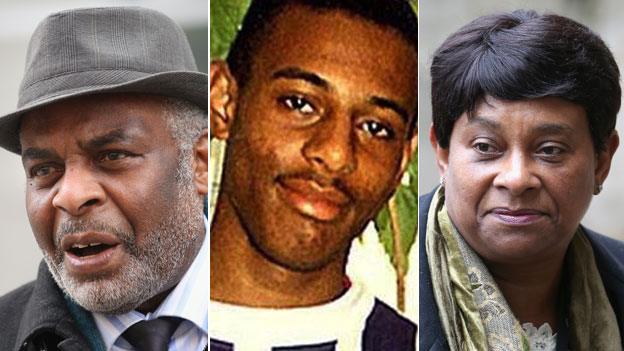
- Published7 March 2014
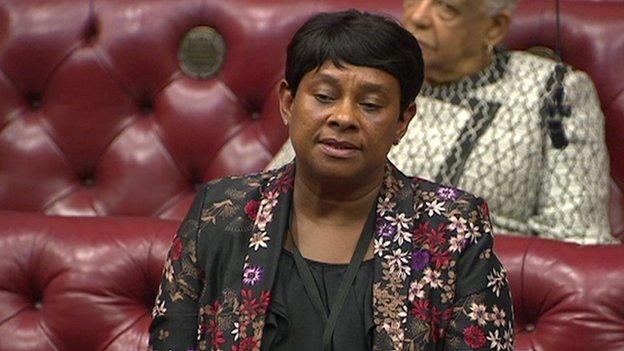
- Published7 March 2014
- Published7 March 2014
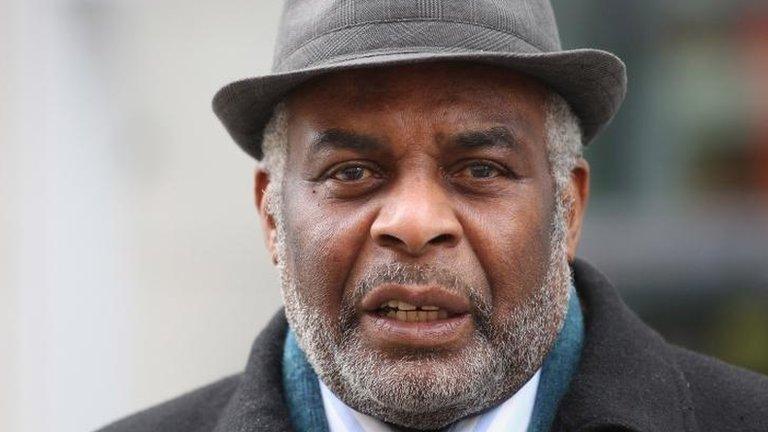
- Published7 March 2014

- Published13 April 2018
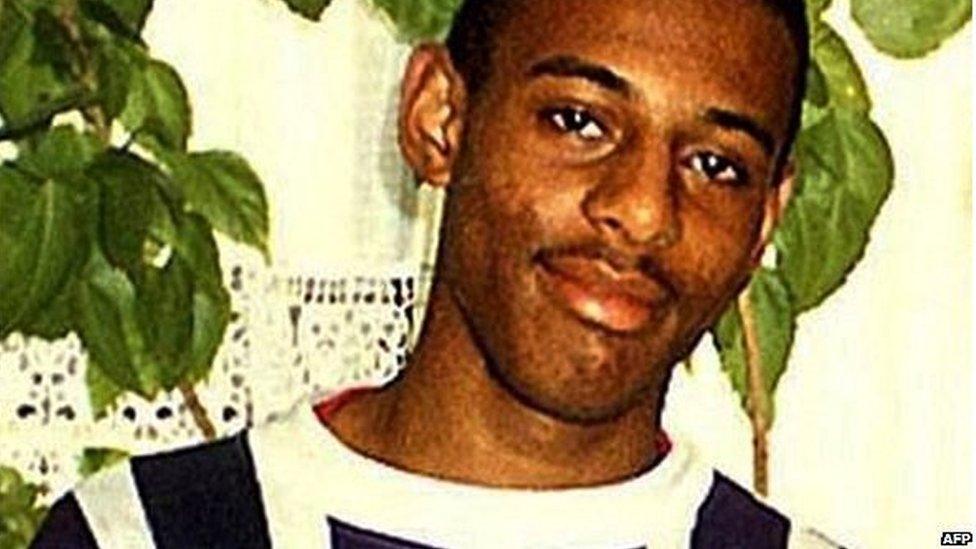
- Published6 March 2014
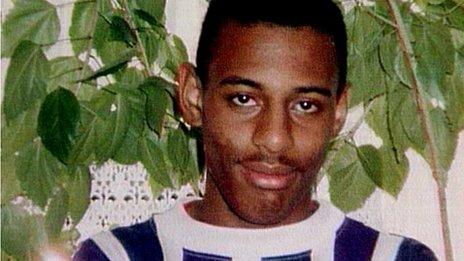
- Published6 March 2014
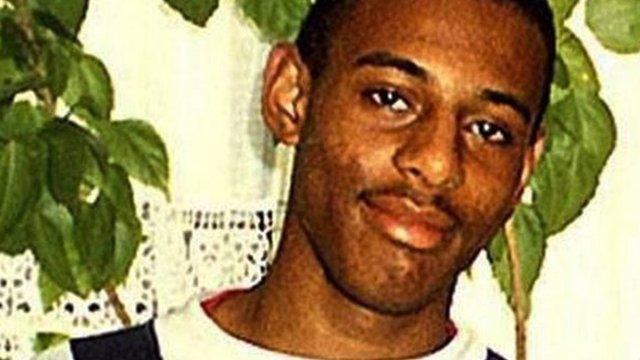
- Published7 March 2014
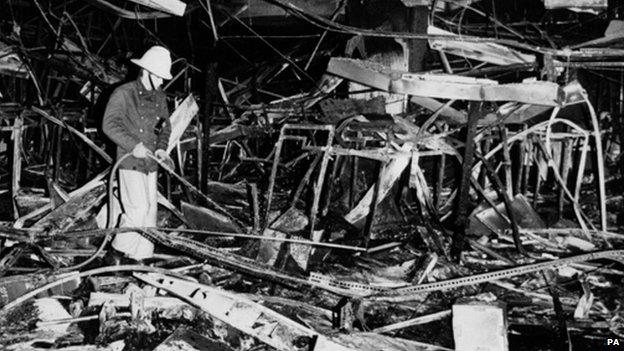
- Published6 March 2014

- Published6 March 2014
